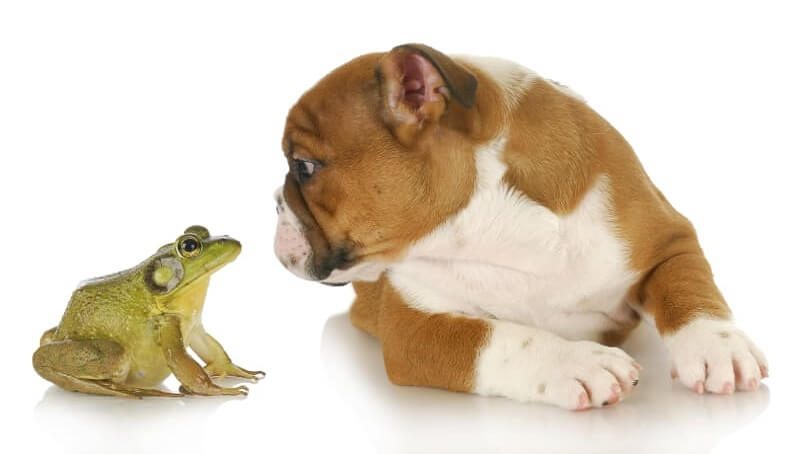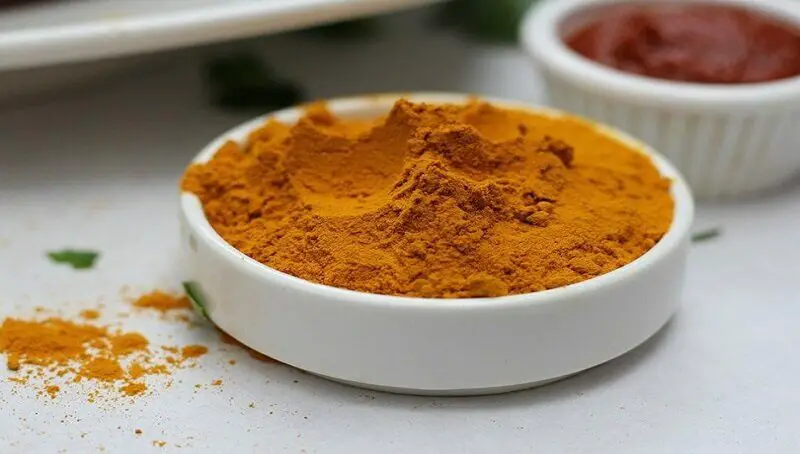
What To Do When a Lizard Loses Its Tail
November 23, 2022
Are Toads Poisonous to Dogs?
November 25, 2022
The use of turmeric in dogs’ and cats’ diets has many health benefits, but also some contraindications that you should know about. Else, you could put their health at risk.
What is turmeric?
Turmeric originated in India almost 4,000 years ago. It was used as a condiment and medicine, but also as an effective dye. Turmeric is technically a root and belongs to the ginger family. Probably the most important compound in turmeric is curcumin, which gives it medicinal properties.
Turmeric (Curcuma longa) is a root of the ginger family, which is widely used for its many benefits, but mostly as a natural anti-inflammatory aid. Specifically, curcumin is the phytochemical that gives it this power, but it is important to know that it must be accompanied by piperine (present in pepper) to be activated and therefore effective.
Benefits of turmeric in cats and dogs
Although the most interesting benefit is the anti-inflammatory one, there are other benefits it can have on your dog or cat:
- A natural anti-inflammatory, being very useful in joint problems;
- Regulator of blood sugar levels;
- High antioxidant power;
- Protector of the heart;
- Protective for the stomach.
Contraindications of turmeric in cats and dogs
The fact that something is natural does not mean it is harmless, so it is important that if your dog or cat has any pathology or is taking any medicine, ask your veterinarian if you can give them turmeric. Some contraindications are found in these situations:
- If your pet has a clotting problem;
- Before and after surgery;
- If it has gastric ulcers;
- If it has gallstones and obstruction by them.
How to offer turmeric to your cat or dog?
There is a possibility to buy quality capsules that are ready to be ingested, but even though you might think this is complicated in dogs, in cats it usually is a lot worse. So, I recommend you offer them through the golden paste, a very easy recipe to make.
Golden paste ingredients:
- 250 ml water;
- 60 grams of turmeric (if it can be organic);
- 70 ml cold pressed coconut oil, if not, then extra virgin olive oil;
- 1 tsp and a half black pepper, ground on the spot.
Golden paste recipe, step by step
Put half the water together with all the turmeric in a saucepan over medium heat and mix until you get a homogeneous mixture.
You need to cook it for 10 minutes and during this time you will gradually add the water you have left without stopping the mixing process.
After a while, remove the pan from the heat and add the coconut oil and freshly ground black pepper, and mix well.
You might also like my articles on whether:
When everything is well mixed it will have a texture like yogurt, and you can put it in a glass container. When it cools down, you can put it in the refrigerator because it can be stored for about 10-15 days.
Dosage of turmeric for cats and dogs
The dose to be administered may vary depending on each animal, the pathology to be treated, and the form of the turmeric. Therefore, it is always recommended to consult your veterinarian beforehand.
Dosage when you offer turmeric in powder or golden paste
 If you buy it as a powder, and it is organic, remember that you need to activate it with pepper. The dose is 1/4 small teaspoon for every 5 kg of weight per day.
If you buy it as a powder, and it is organic, remember that you need to activate it with pepper. The dose is 1/4 small teaspoon for every 5 kg of weight per day.
Turmeric in capsule dose
If you choose to buy turmeric capsules for human consumption it is important to consider the daily mg range allowed. An easy dosage option might be the following:
- Large or giant dog breeds: 500 mg/2-3 times a day
- Small to medium dog breeds: 250 mg/2 times a day
- Cats: 100 mg/2 times a day
External use
External use of turmeric for cats and dogs offers them many benefits. Therefore, it can be used topically for skin conditions such as infections, wound healing, and stopping bleeding. You can use clean turmeric powder and sprinkle it over the area of concern. Alternatively, you can mix it with coconut or olive oil to make a paste. Apply this to the skin and then cover it with a bandage, if necessary.
Turmeric for dogs is considered safe if used at the recommended dosage. However, it could interact with other supplements and medications and will cancel out the benefits of both. Always consult your veterinarian before using it on your cat or dog.
